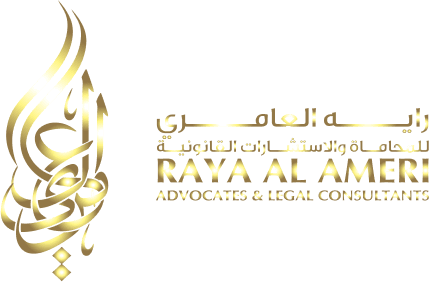2025 UAE Family Law Changes: Key Facts for Families
Updates to UAE Family Law and Their Impact
Did you know that under the UAE’s new family law, children as young as 15 can now decide which parent they want to live with? This is just one of the many groundbreaking changes aimed at creating a fairer and more inclusive legal system for families.
The UAE has introduced groundbreaking changes to its UAE Family Law framework, designed to modernize legal systems and offer stronger safeguards for families and children. These reforms, effective April 2025, bring meaningful changes to key areas such as child custody, financial responsibilities, and educational guardianship.
Family law in the UAE has undergone significant updates to better accommodate the country’s diverse population. The federal law applies to both Emiratis and expatriates and aligns with the progressive legal reforms introduced in recent years to support non-Muslims. These changes reflect the UAE’s commitment to creating an inclusive legal framework that addresses the needs of its multicultural society.
New Custody Rules: How Mothers Gain Greater Rights
Among the most impactful reforms under the UAE Family Law Updates are the changes to custody rules, which prioritize fairness and the best interests of children. These new provisions not only strengthen mothers’ rights but also ensure that children’s well-being and independence are at the heart of custody decisions. Below are the key changes:
What’s Changed?
-
- Extended Custody Age: Fathers and mothers can now retain custody of both boys and girls until they turn 18, compared to the previous limits of 11 for boys and 13 for girls.
-
- Empowering Non-Muslim Mothers: Non-Muslim mothers married to or previously married to Muslim men now have the right to retain custody of their children beyond the age of five, closing a significant gap in the previous law.
-
- Children’s Choices in Custody Decisions: For the first time, children aged 15 and older can choose which parent they want to live with, provided the court determines that their decision is in their best interest.
-
- Child’s Education: Mothers retain the right to make key decisions about their children’s education under the updated law, unless the court determines that an alternative arrangement would better serve the child’s interests.
-
- Special Custody Provisions for Medical Cases: For children with severe medical or psychological needs, custody typically remains with the mother unless the court finds that another arrangement would better support the child.
These changes under the UAE’s New Family Law show a greater focus on protecting children’s well-being while allowing them more independence as they grow older.
Simplified Travel Rules for Families Under UAE Family Law
Travel-related disputes are common among separated or divorced parents, but changes to the UAE Family Law aim to reduce these conflicts. Both parents now have equal travel rights, allowing either parent to travel alone with their child for up to 60 days each year.
In special cases, like when a child needs medical treatment or other valid reasons arise, the allowed travel period can be extended. These updates help parents avoid unnecessary disagreements while ensuring the child’s needs remain the priority.
Greater Protection for Custodial Parents
Custodial parents, especially mothers, are now better protected. Leaving the family home no longer means automatically losing custody, as long as the child’s well-being isn’t affected. This change acknowledges the complexities of family situations and ensures custody decisions focus on what’s best for the child.
Family support has been expanded to include more than just traditional cash payments. Contributions such as paying for school fees, medical expenses, in-kind assistance, and other benefits are now recognized as valid forms of support.
To safeguard families, alimony payments are given top priority over other debts, such as unpaid wages or legal fees. This ensures that families receive financial assistance quickly, reducing delays and minimizing financial stress during challenging times. Wives are also given additional financial protections under the law. They can now claim backdated maintenance for up to six months and request adjustments to increase mandated support amounts.
Stricter Rules for Handling Children’s Documents
Managing children’s Emirates IDs and passports now comes with stricter rules to prevent misuse. Mothers are responsible for holding the child’s Emirates ID, while fathers retain the passport. If a parent uses an ID for unauthorized travel, like crossing into GCC countries without the other parent’s consent, they could face legal consequences.
Penalties and Protections: Enforcing Family Welfare
New legal provisions ensure stricter penalties for those who violate family rights and safeguards. Custodians who fail to comply with travel rules or neglect to hand over vital documents, such as a child’s passport or Emirates ID, to the rightful guardian may face fines ranging from Dh5,000 to Dh100,000 or even jail time in severe cases.
Additional penalties are also in place for offenses like misusing a child’s funds, spending money meant for the child after custody arrangements have ended, or traveling with a child without proper consent from the guardian or court. These measures are designed to protect children and prevent misuse of parental responsibilities.
By addressing contemporary family issues and adapting its laws, the UAE has created a balanced and inclusive approach that prioritizes fairness and the welfare of all family members, from children to elderly parents.
Expert Legal Support for Family Law
Navigating family law can be challenging, especially with recent changes. At Raya Al Ameri Advocates & Legal Consultants, our experienced Family Law Attorneys provide professional guidance and personalized support to help you through every step.
With a deep understanding of UAE Family Law, we handle even the most complex cases with efficiency and care. Our team is dedicated to protecting your rights and ensuring the best outcomes for you and your family.
Choose Raya Al Ameri Advocates for trusted, compassionate, and effective legal representation. Contact our skilled Family Law Attorneys today to see how we can assist you.
FAQs
Q1: What is the purpose of the UAE’s new family law updates?
The updates aim to modernize the legal system, protect children’s rights, and support mothers in custody cases.
Q2: Do these laws apply to expatriates?
Yes, the laws are inclusive and cater to both UAE nationals and expatriates.
Q3: What should I do if I face a custody dispute?
It’s recommended to consult a legal expert who specializes in UAE family law for guidance.
Q4: What are the new custody rights for mothers?
A: Mothers can now retain custody of their children until they turn 18. Non-Muslim mothers also gain additional rights, including custody beyond the age of five.
Q5: What are the penalties for violating travel rules?
A: Violations can result in fines from Dh5,000 to Dh100,000 and potential jail time for offenses like unauthorized travel or misuse of a child’s documents.
Q6: Can children choose which parent to live with?
A: Yes, children aged 15 and older can now choose which parent to live with, as long as the court determines their decision is in their best interests.
—————————————————————————————————————————————————————————-
The recent updates to the UAE Family Law represent a major step toward building a modern, inclusive, and fair legal framework. By raising the custody age and allowing children to choose which parent to live with at 15, the law prioritizes their emotional and psychological well-being while fostering greater harmony within families.
Discover more about family law in the UAE with topics like Divorce Law for Expats, UAE Laws on Child Custody, and Women’s Rights in Marriage and Divorce.
We are dedicated to providing our clients with comprehensive support throughout every stage of criminal litigation proceedings. Our profound knowledge of local laws has earned us the reputation as some of the best criminal lawyers in Dubai and the UAE. We take pride in our consistent delivery of exceptional legal counsel across all aspects of criminal litigation, making us one of the best law firms in Dubai with top criminal lawyers.

